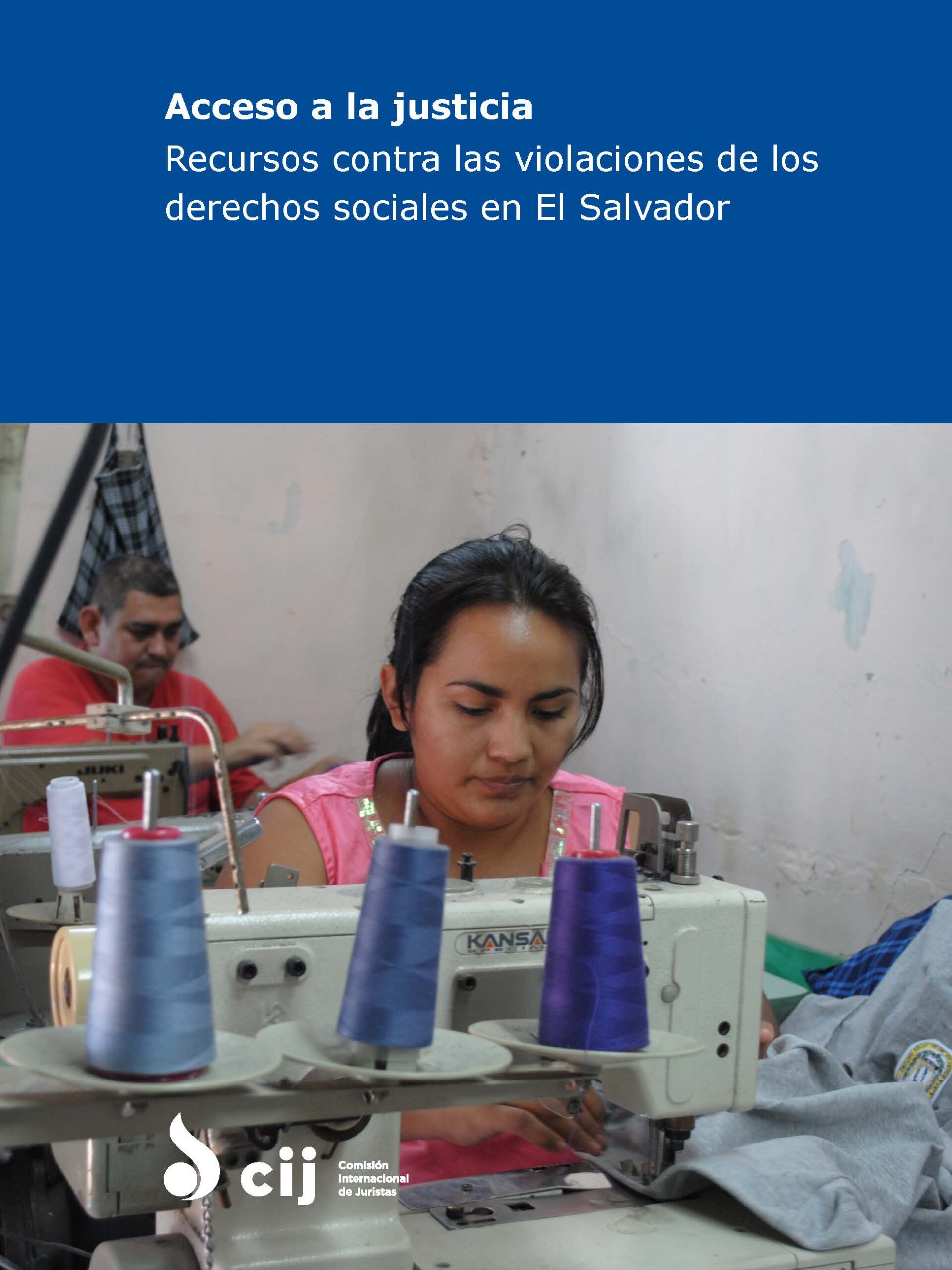A new study on access to justice and remedies for violations of economic, social and cultural rights, launched today by the ICJ highlights various obstacles that prevent Salvadorians from accessing justice effectively.
They include economic, normative, procedural and other legal obstacles.
The study Acceso a la Justicia – Recursos contra la violaciones de los derechos sociales en El Salvador launched at a public conference organized in collaboration with the Fundación de Estudios para la Aplicación del Derecho and the Instituto de Derechos Humanos de la Universidad Centroamericana (UCA), is the outcome of a research and consultation process that started in 2012 and involved various official and civil society actors.
It takes stock of the remedies available to victims of violations of economic, social and cultural rights such as labour rights and the rights to housing and health and assesses their accessibility and effectiveness.
The report makes recommendations to address the obstacles identified.
The study illustrates that providing access to courts and legal remedies is a fundamental element of any strategy to realize economic, social and cultural rights and to combat poverty and social inequalities.
As Jessica Vasquez, ICJ’s Legal Adviser on Economic, Social and Cultural Rights (ESCR) in Central America, stated: “a right that cannot be claimed by those who allege that it is threatened or violated is not a right. Economic, social and cultural rights, just like civil and political rights, require not only effective public policies but also a regular monitoring in order to assess whether progress is achieved or not, as well as remedies and reparation in cases of confirmed violations.”
El Salvador is one of the first countries to have ratified the Optional Protocol to the International Covenant on Economic, Social and Cultural Rights and thus to have accepted the jurisdiction of a UN body to hear complaints of rights violations in El Salvador, where the alleged victims are unable to obtain justice domestically.
“The ICJ study aims to contribute to the discussions on access to justice and legal remedies for these rights that are made especially timely and opportune by El Salvador’s ratification of this new treaty,” said Sandra Ratjen, ICJ’s Senior Legal Adviser on Economic, Social and Cultural Rights (ESCR).
The launch of the study at the Universidad Centroamericana is part of a week of ESCR-related activities carried out by an international mission involving the ICJ Office for Central America, the ICJ programme on ESCR as well as ICJ Commissioners Philippe Texier and Rodrigo Uprimny.
The ICJ delegation will meet various relevant actors, including public authorities, civil society organizations and lawyers.
Contacts
Ramon Cadena, ICJ Office Central America at +502 5511 9976
Sandra Ratjen, ICJ Programme on ESCR at + 41 79 9640596
Jessica Vásquez, ICJ Office Central America at +502 4219 0411
Javier Melgar, ICJ Consultant El Salvador at +503 7986 5185
El Salvador-Acceso à la Justicia launch-News-press release-2013-spa (full text in pdf, Spanish)
Salvador-Acceso a la Justicia-Publications-Report-2013-spa (full text in pdf, Spanish)

